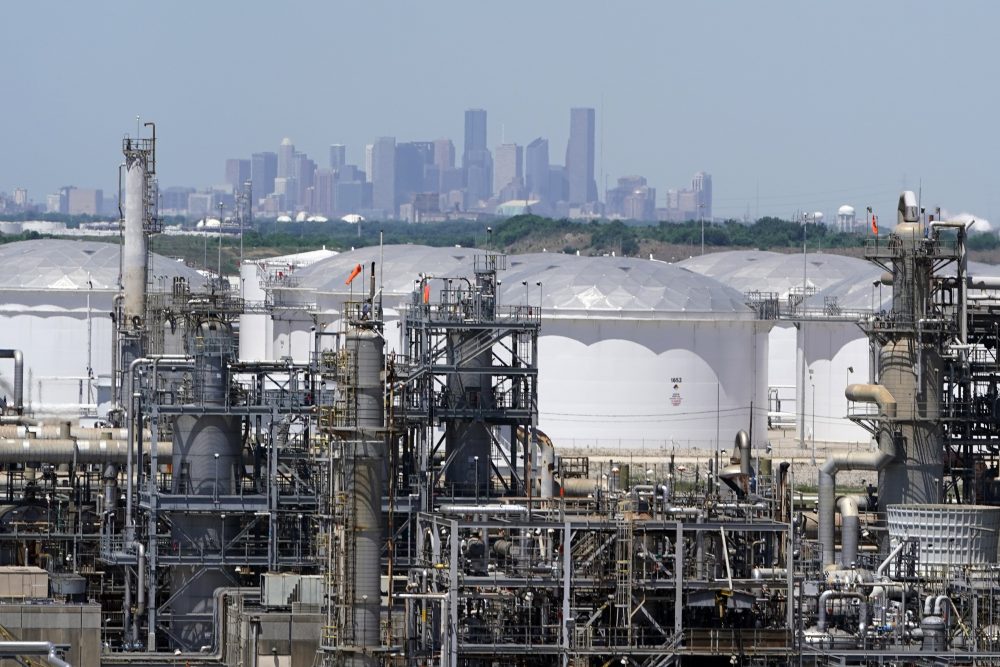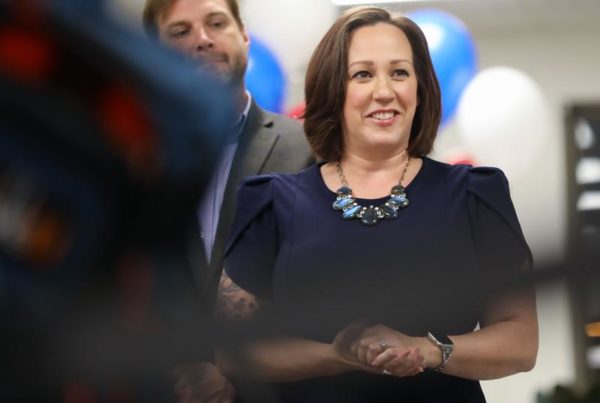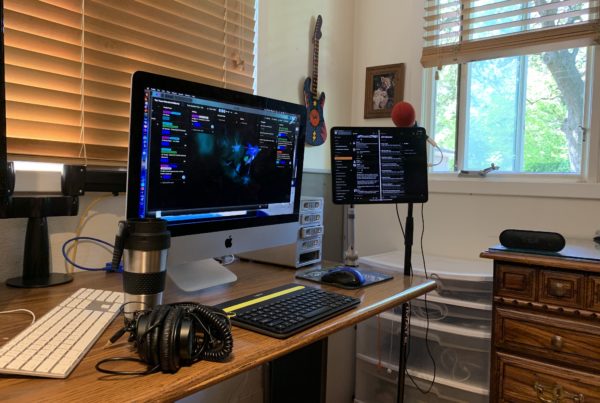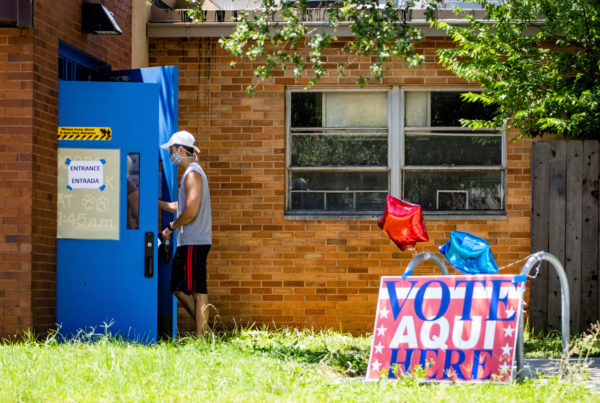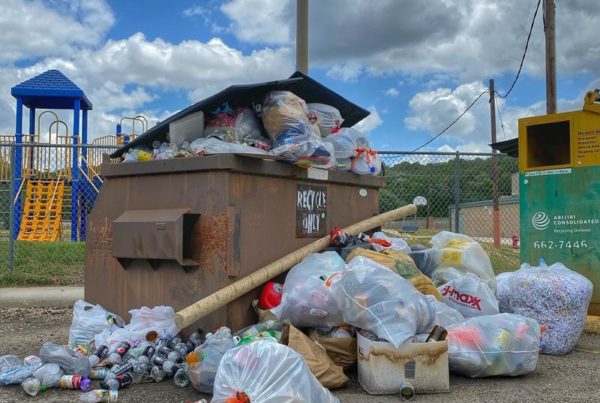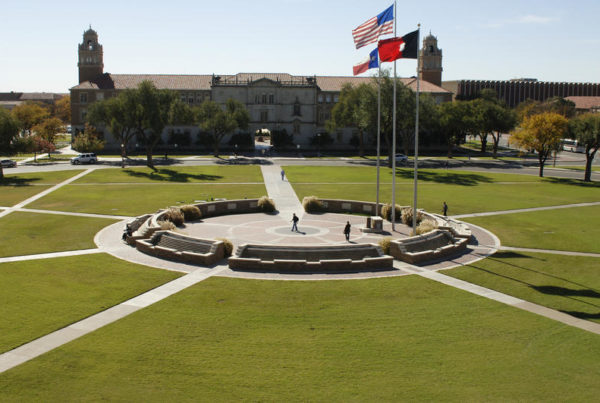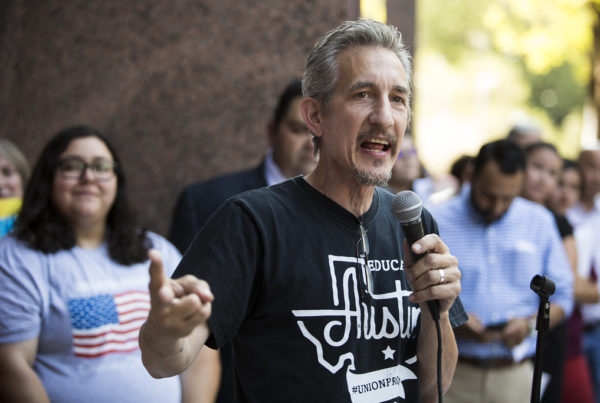Since March, the Texas Commission on Environmental Quality has received more than 150 requests to waive environmental regulations from companies that say they can’t comply because of the pandemic, state records show.
Requests came from major oil and gas companies, like ExxonMobil, Marathon Petroleum and Shell. A chunk of the requests were administrative, with companies asking to submit documents electronically or for deadline extensions. But dozens of times, petrochemical companies in Texas also asked to suspend monitoring for chemical leaks.
While leaks aren’t as visible as big flaring events, they can still pose a danger to the environment and surrounding community.
“The majority of the emissions that our communities face are invisible to the naked eye,” said Yvette Arellano, a community organizer with Texas Environmental Justice Advocacy Services. “You and I can’t go outside and see the sulfur, the benzene, the butadiene, the ethylene — we can’t see any of that.”
In March, the EPA told companies they didn’t need to inform federal regulators if they couldn’t complete certain air and water pollution monitoring because of the pandemic. This left enforcement largely up to state agencies, prompting the TCEQ to release a statement saying it would grant discretion on a case-by-case basis if companies faced limitations or safety concerns due to the pandemic.
Of the waivers that were granted, the suspension of leak monitoring and repair programs for volatile organic compounds (VOCs) were most concerning to environmentalists. VOCs include a broad category of chemicals, like benzene and ethylene, many of which can cause cancer. They also react with other chemicals in the air to form ozone smog.
“We found that leaks and malfunctions are a huge source of emissions,” said Catherine Fraser with Environment Texas. “We’re worried about increased pollution from industrial facilities that can increase ozone or smog pollution, especially during a respiratory pandemic.”
Leaks can come from valves, pumps, and connectors. In fact, the EPA found that leaking equipment was the largest source of VOC emissions at refineries and chemical manufacturing facilities, which is why they usually require facilities to monitor for leaks and repair them.
About 40% of the total requests the TCEQ received came from facilities in greater Houston, according to data from the agency. Two companies — Phillips 66 and Enterprise Products Partners — had the most requests to postpone leak monitoring in the Houston area.
Phillips 66 received permission to suspend leak monitoring at five of its facilities in Brazoria County through July 31, including at its Sweeny Refinery. In a letter to the TCEQ in March, Phillips 66 said one of their contractors on the leak monitoring and repair team had COVID-19 and they needed to delay some of their monitoring as a result.
Midstream company Enterprise also got permission to postpone leak monitoring at six of its facilities in the area through the end of September, including at its Mont Belvieu complex. About 40% of total emissions at the Mont Belvieu complex in 2018 were fugitive emissions, meaning they came from things like leaks, according to the latest emissions data from the EPA. This included 70,000 pounds of propylene.
In a statement, an Enterprise spokesman said safety is the company’s top priority. “The request to the TCEQ is designed to protect essential operations personnel during the current pandemic by limiting contact with third parties,” the statement reads.
But environmentalists say this type of monitoring should be essential and questioned the idea that the pandemic would prevent it.
“Social distancing in my experience has not been difficult while doing this work,” said Corey Williams, the research and policy director at the non-profit Air Alliance Houston. Williams previously worked for a decade doing leak monitoring at facilities around Houston. He said the work is often outside and rather isolated.
“You know climbing through pipe racks or otherwise in the refinery with very little social interaction at times,” he said, adding that they already wear personal protective equipment. “They have hard hats and goggles and earplugs. They’re not strangers to taking precautions to protect their health.”
Williams said even a short gap in monitoring can set back the whole repair process.
“If there’s a significant leak on say a compressor, it may be six months from now that it’s repaired instead of 30 days from now,” he said. “It has the potential to emit that much more, however many pounds of VOCs or hazardous air pollutants, it will emit that much more by delaying detection of those leaks.”
And Williams said when companies take a break from monitoring — even if it’s just for a quarter — that data is lost forever.
“Their emissions inventories are inaccurate. They’re worthless. And these emissions inventories are important. They help regulators detect sources of high emissions and reduce them,” he said.
When asked about the monitoring suspensions, TCEQ spokesman Brian McGovern said they’ve kept requirements in place and haven’t given across the board waivers. State documents show the agency has denied 18 of the requests for waivers it has received.
“This activity requires regulated entities to allow third-party contractors access to their facilities in order to conduct monitoring and data collection. Due to the ever-changing nature of the global pandemic and stay-at-home orders, contractors are either not able to travel, or entities are limiting facility access for the safety of their workers,” McGovern wrote. “The required monitoring is expected to be completed as soon as practicable, as conditions allow prior to the end of the extension of time.”
McGovern also said leak monitoring is just one part of an extensive program and that facilities still have other requirements in place, including fenceline monitoring and cameras that detect visual signs of flares, leaks and spills.
University of Houston environmental law professor Victor Flatt said he’s glad the TCEQ made the requests for environmental waivers public. But, he said, there needs to be even more transparency.
While some company names were released, in other instances they were kept private due to the Texas Public Information Act. For example, a facility in Galveston that asked to delay repairing some of its leaks is unnamed.
“It doesn’t help citizens. It doesn’t help that at all,” said Flatt. “It doesn’t tell us exactly where they are. It doesn’t give us a chance to try to increase citizen monitoring in those areas.”
And some advocates say it’s unfair to make exceptions for facilities when community members are being asked to stay at home.
“Having people shut inside, quarantining in their homes, following not only the laws, but the social niceties — they’re being punished and they don’t even know they’re being punished,” said Arellano, the organizer with T.e.j.a.s.
The EPA is ending its enforcement waiver at the end of August. But the TCEQ said it will continue offering discretion on a case-by-case basis for as long as COVID-19 remains a threat to public health.


